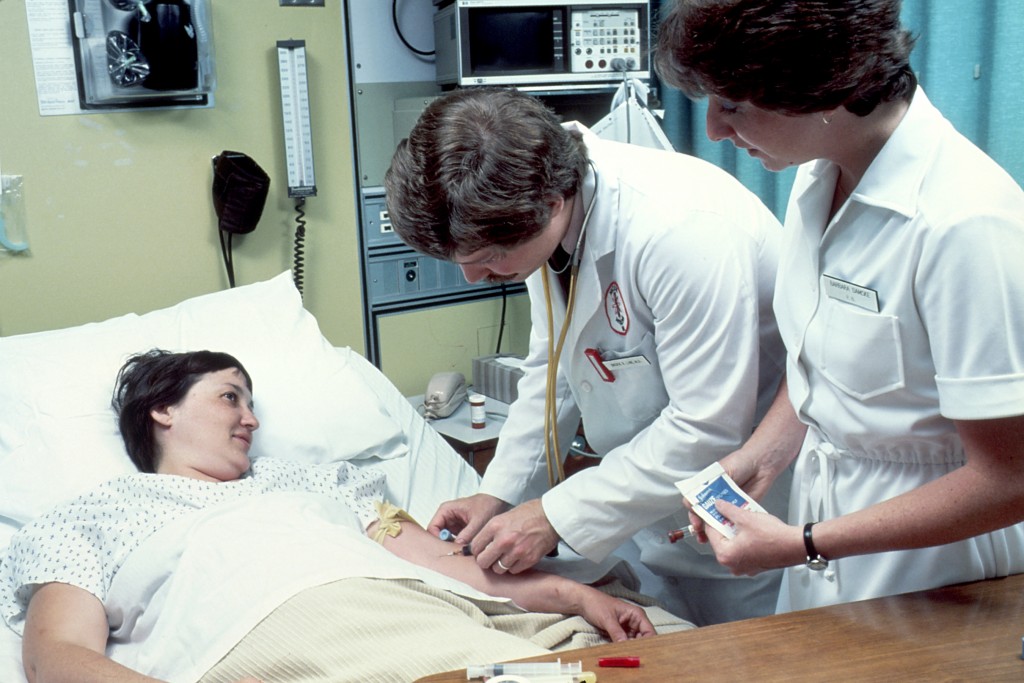Study: Lack Of Sleep Linked To Increased Risk Of High Blood Pressure
If you're middle age and sleep five or less hours a night, you may be increasing your risk of developing high blood pressure.
Study of Diabetic Veterans Details Frequency of Health Care Needs
A study of 33,481 diabetic veterans suggests that many of these individuals carry an extremely heavy burden of other diseases.
Medicare Beneficiaries with Multiple Chronic Conditions 99 Times More Likely To be Hospitalized
Medicare beneficiaries with four or more chronic conditions such as asthma, arthritis, diabetes, or hypertension are 99 times more likely to experience one or more potentially preventable hospitalizations than those without a chronic condition.
Study: Increased Nighttime Blood Pressure May Be Linked To Higher Risk For Congestive Heart...
Having a relatively high blood pressure level at night may increase the risk for congestive heart failure, according to a study in the June 28 issue of JAMA.
Exercise, Not Diet, May Be Best Defense Against Heart Disease
Despite widespread attention to diet, calorie intake may not be a major factor in causing death by heart disease.
Alcohol-Induced Sodium Sensitivity May Increase Blood Pressure
Alcohol-induced sodium sensitivity may be one of the mechanisms underlying the association among heavy alcohol consumption, alcohol withdrawal, and high blood pressure.
Managing High Blood Pressure In Type 2 Diabetes Sufferers Could Save Lives
High blood pressure has been known to be a bad companion of diabetes for many years. New papers offer clinicians some effective treatment options for diabetes sufferers with high blood pressure.
Men May Be at Increased Risk of Peripheral Artery Disease When They Have Certain...
Among nearly 45,000 men who were followed up for more than two decades, those with the risk factors of smoking, hypertension, high cholesterol, and type 2 diabetes had an associated greater risk of developing PAD.
New Research Casts Doubt Over Heart Disease Treatments
Some treatments for high blood pressure could be increasing the risk of heart attacks and causing more people to need cardiac pacemakers, according to new research findings.
Study: Hypertension Data May Mask Racial Disparities Among Hispanics
Black Hispanics in America are suffering higher rates of hypertension than their Hispanic counterparts who are white, a new study finds.
Cardiac Stress Tests May Indicate If Blockages Will Recur After Angioplasty With Stent Implant
A nuclear cardiac stress test administered shortly after a coronary angioplasty with stent implantation may give important clues to whether the procedure was successful or whether the patient will require more procedures.
Walking to Work Cuts Risk of Diabetes and High Blood Pressure
People who walk to work are around 40% less likely to have diabetes as those who drive, according to a new study.
Overweight Male Teens With Normal Blood Pressures Showing Signs of Heart Damage
Even while their blood pressures are still normal, overweight male teens may have elevated levels of a hormone known to increase pressures as well as early signs of heart damage.
Blood Pressure Medications Not Equal, Researchers Say
A blood pressure medicine's success at lowering pressure shouldn't be the only measure of its effectiveness, say researchers from Wake Forest University Baptist Medical Center and colleagues in an editorial in this week's Annals of Internal Medicine.
Ethnic, Gender Differences in Blood Pressure Also Seen in Youth
Even among healthy adolescents, differences exist between ethnic and gender groups that may predict high blood pressure without an identifiable cause, suggest the results of a study of black and white males and females.
Researchers Discover Link Between Common Sleep Disorder and High Blood Pressure
An international team of researchers has found evidence that people suffering from moderate to severe cases of restless legs syndrome (RLS) are at significantly increased risk for developing hypertension.





